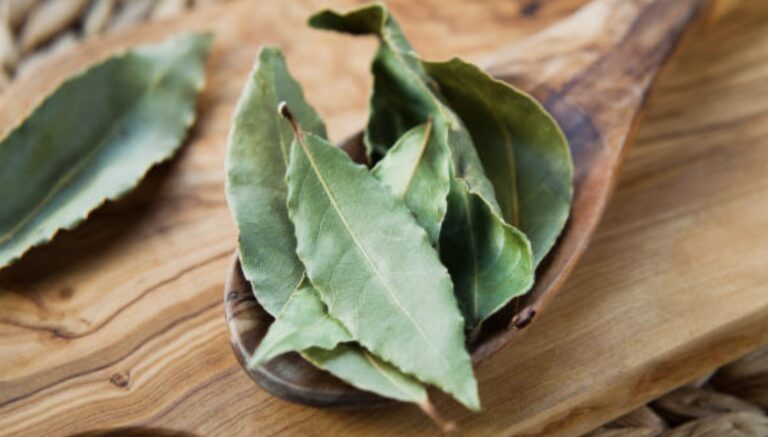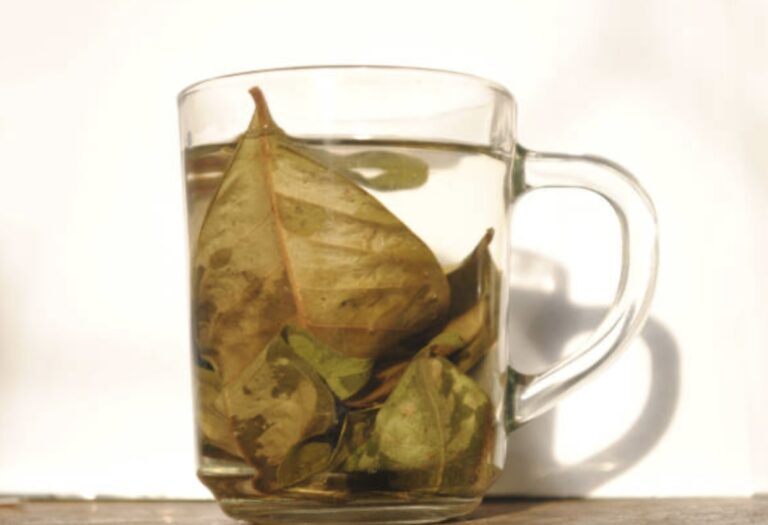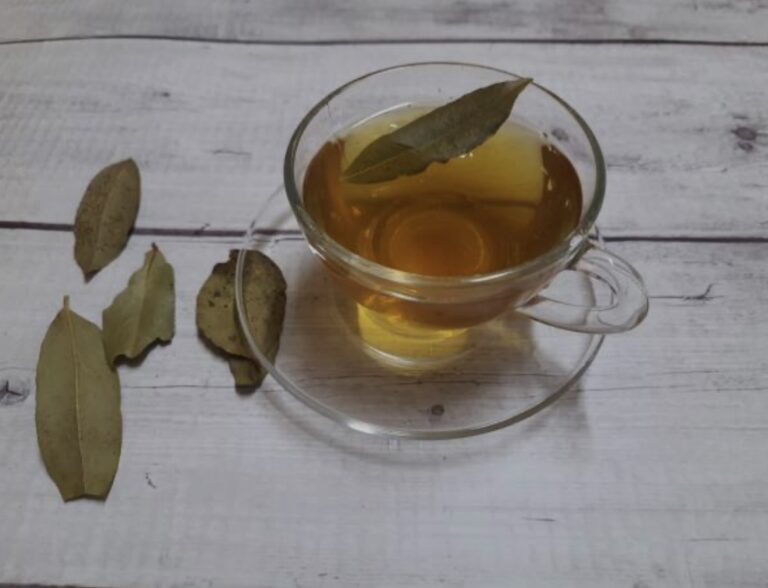Why Drink Bay Leaf Tea Daily? Answer: Numerous Health Benefits
In our fast-paced world, the return to nature’s bosom seems like a comforting respite for many. Among nature’s bountiful gifts, bay leaf stands out not just for its culinary prowess but also for its medicinal properties, a secret well-guarded across centuries. This guide invites you on a journey to explore the myriad benefits of daily bay leaf tea consumption, promising not just a healthier you but a deeper connection with the wisdom of the ancients. This will help answer the question, why drink bay leaf tea daily.
Savoring Nature’s Gift: The Comprehensive Guide to Daily Bay Leaf Tea Benefits
Sipping on a cup of bay leaf tea is akin to flipping through the pages of history, where each sip reveals an era where nature’s gifts were the cornerstone of health and well-being. Beyond its aromatic allure in the culinary world, bay leaf emerges as a potent herbal remedy. This guide endeavors to unveil the layers of bay leaf’s benefits, transforming your daily tea ritual into a holistic wellness journey.
Overview of Bay Leaf’s Historical Significance
Ancient Uses and Cultural Significance
Historically, bay leaf was not just a culinary ingredient but a symbol of victory and honor, worn as laurels by Roman and Greek heroes. Beyond its symbolic use, ancient civilizations recognized bay leaf for its healing properties, using it to alleviate a variety of ailments.

Transition into Modern Herbal Remedies
From ancient to modern times, the transition of bay leaf from a kitchen staple to a key ingredient in herbal remedies underscores its enduring relevance in promoting health and wellness.
Overview of Bay Leaf in Culinary Versus Medicinal Uses
While bay leaf continues to be a culinary favorite, its medicinal uses, especially in tea, present a compelling case for its inclusion in daily health routines, offering a bridge between taste and health.
What Makes Bay Leaf Tea Special?
Key Compounds and Their Health Implications
Bay leaf is rich in compounds like cineole and eugenol, which offer anti-inflammatory, anti-bacterial, and digestive properties. This potent mix of compounds positions bay leaf tea as a health elixir.
Comparison with Other Herbal Teas
Unlike many herbal teas that excel in either taste or health benefits, bay leaf tea stands out for offering both, without compromising on either front.
The Science Behind Its Benefits
Emerging research supports the health claims associated with bay leaf, from reducing cholesterol levels to easing digestive woes, making it a subject of interest in the scientific community.

Empowering your daily routine
Incorporating bay leaf tea into your daily routine can be a simple yet effective step towards a healthier lifestyle, promoting not just physical but also mental well-being.
The Nutritional Profile of Bay Leaf Tea
This tea has vitamins and minerals galore. It’s literally bursting with goodness. Bay leaf is a treasure trove of vitamins A and C, magnesium, calcium, manganese, and iron, essential nutrients that bolster overall health.
Essential Vitamins Found in Bay Leaves
These vitamins are crucial for maintaining healthy skin, enhancing vision, and boosting the immune system, making bay leaf tea a nutrient-packed choice.
Minerals that Enrich Your Diet
The minerals present in bay leaf support bone health, improve circulation, and aid in the absorption of other nutrients, underlining the holistic benefits of daily consumption.
How These Nutrients Contribute to Overall Health
The synergistic effect of vitamins and minerals in bay leaf tea promotes a body that is not just healthier but also, more resilient against diseases.
Antioxidants and Their Magic
Identifying Key Antioxidants in Bay Leaf Tea
Bay leaf tea is loaded with antioxidants like quercetin, eugenol, and catechins, warriors in the fight against free radicals responsible for aging and diseases.
The Role of Antioxidants in Disease Prevention
These antioxidants offer a shield against a variety of diseases, from cancer to heart disease, showcasing bay leaf tea as a powerhouse of disease prevention.
Comparing Antioxidant Levels to Other Teas and Foods
In comparison to other teas and foods, bay leaf tea holds its ground, often surpassing them in antioxidant content, making it a superior choice for those seeking antioxidant-rich diets.

Calming Compounds: A Stress Relief Ally
Linalool: The Stress-Reducing Compound
Bay leaf tea contains linalool, a compound known for its calming effects on the body and mind, providing a natural remedy for stress and anxiety.
The Effects of Eugenol on the Mind and Body
Eugenol, another key compound in bay leaf, offers analgesic properties that can alleviate pain and elevate mood, further cementing bay leaf tea’s role in stress management.
How Daily Consumption Can Aid in Stress Management
Integrating bay leaf tea into your daily routine can serve as a gentle yet effective approach to managing stress, promoting a sense of calm and well-being.
Health Benefits of Drinking Bay Leaf Tea Daily
Digestive Wellness
Enhancing digestion and nutrient absorption
Alleviating common digestive disorders
The link between gut health and overall wellness
Regular consumption of bay leaf tea can stimulate digestive enzymes, easing digestion, and preventing common ailments like bloating and constipation.
Heart Health and Blood Sugar Regulation
Impact on blood pressure and cholesterol
The role in diabetes management
Preventive aspects for long-term heart health
Bay leaf tea’s impacts on heart health and blood sugar levels make it a vital drink for those looking to maintain cardiovascular health and manage or prevent diabetes.

Immune System Boosting
Compounds that bolster immune function
The common cold: prevention and relief
The broader implications for disease resistance
The immune-boosting properties of bay leaf tea prepare the body to fight off infections and diseases, making it a daily necessity for a strong immune system.
Practical Tips for Incorporating Bay Leaf Tea into Your Daily Routine
Brewing the Perfect Cup
Choosing the right bay leaves: fresh versus dried
Step-by-step brewing instructions
Personalizing your tea with additional flavors
Creating the perfect cup of bay leaf tea involves selecting high-quality leaves and brewing them to perfection, a ritual that can enhance your daily routine.
Creative Ways to Enjoy Bay Leaf Tea
Recipes for cold and hot variations
Incorporating bay leaf tea into your meals
Seasonal and time-of-day suggestions for maximum enjoyment
Bay leaf tea can be enjoyed in numerous ways, from invigorating morning brews to soothing evening blends, adapting to your lifestyle and preferences.

Dos and Don’ts of Bay Leaf Tea Consumption
Understanding the Moderation Guideline
Though beneficial, bay leaf tea should be consumed in moderation to avoid any adverse effects, highlighting the importance of balance in consumption.
Potential Interactions with Medications
Bay leaf tea may interact with certain medications; thus, it’s crucial to consult with a healthcare provider before integrating it into your routine.
When to Avoid Bay Leaf Tea
Individuals with certain health conditions or allergies should exercise caution and potentially avoid bay leaf tea, underscoring the need for personalized wellness practices.
Steeped in Tradition: Crafting the Perfect Cup of Bay Leaf Tea
The Simple Art of Brewing Bay Leaf Tea
Making bay leaf tea is an exercise in simplicity, yet the resulting brew is anything but plain. Here’s how to transform these humble leaves into a soothing, aromatic drink.
Choosing Your Leaves
First off, let’s talk about the main ingredient – bay leaves. While fresh bay leaves can be used, dried bay leaves are commonly preferred for tea due to their more concentrated flavor and longer shelf life. Organic leaves are ideal, providing peace of mind regarding pesticide use and ensuring a clean, natural taste.
The Brewing Basics
Quantity: For a standard mug of tea, 2 to 3 dried bay leaves are sufficient.
Water: Fresh, preferably filtered water is key to a good cup of tea. It ensures no external flavors compromise the delicate taste of bay leaf.
Temperature: Boil water, then let it cool for about a minute to reach the ideal temperature, which is just below boiling. This retains the essential oils in the leaves, which are vital for flavor and health benefits.
Steeping Time: Let the bay leaves steep for about 5 to 7 minutes. This allows the water to pick up the flavors without turning bitter.

Enhancing Your Cup
For those who prefer a bit of complexity or sweetness in their tea, consider adding:
A slice of lemon for a citrusy zest
A cinnamon stick during the brewing for a spicy twist
A teaspoon of honey or maple syrup for natural sweetness
Health in a Cup
Bay leaf tea isn’t just about the taste. This herbal brew is packed with benefits that can complement your health regimen. Loaded with vitamins, minerals, and antioxidants, bay leaves can aid in digestion, help in managing diabetes, and even contribute to healthy heart functions. Its anti-inflammatory properties are a boon for those looking to reduce stress and inflammation.
The Joy of Brewing
Making bay leaf tea is more than a culinary activity; it’s a ritual that invites calm and mindfulness into our often hectic lives. The simple act of boiling water, adding the bay leaves, and then patiently waiting as the infusion releases its essence, can be a meditative experience.
Beyond the Cup: Other Uses of Bay Leaves in Wellness and Beauty
Skin Care with Bay Leaves
Preparation of bay leaf-infused oils
Homemade bay leaf masks for skin health
The role of antioxidants in anti-aging
Bay leaf’s benefits extend beyond consumption, offering a natural solution for skincare routines, and leveraging its antioxidant and antimicrobial properties.
Hair Health and Bay Leaves
Rinse recipes for shine and growth
Combating common scalp issues
The significance of nutrients for hair vitality
Incorporating bay leaves into hair care routines can result in lustrous, healthy hair, demonstrating the versatility of bay leaves in beauty regimens.

Aromatherapy and Relaxation
How bay leaf’s aroma promotes relaxation
DIY bay leaf candles and potpourri
Incorporating bay leaf into your relaxation routine
Bay leaf’s aromatic properties can transform your living space into a haven of relaxation, illustrating its multifaceted role in wellness and beauty. Recapping the myriad benefits of bay leaf tea serves as a reminder of how a simple daily habit can have profound impacts on health and wellness.
Frequently Asked Questions
Yes, bay leaf tea can generally be consumed at any time of the day. It is often enjoyed after meals to aid digestion, but there are no strict restrictions on when you can drink it. Adjust based on personal preferences and health considerations.
The timing of experiencing benefits from daily consumption of bay leaf tea varies among individuals. Some may notice improvements in digestion and overall well-being relatively quickly, within a few weeks. However, the full extent of benefits may take longer to manifest, and individual responses can differ. Consistency in daily consumption is key for potential long-term advantages.
While bay-leaf tea is generally safe for most people when consumed in moderation, there are potential risks. Bay leaves contain compounds that could be harmful in large quantities, so excessive consumption should be avoided. Additionally, some individuals may be allergic to bay leaves. Pregnant women should exercise caution, as large amounts of bay leaf may stimulate the uterus. It’s advisable to consult with a healthcare professional before making bay leaf tea a regular part of your routine, especially if you have any pre-existing medical conditions or concerns.


